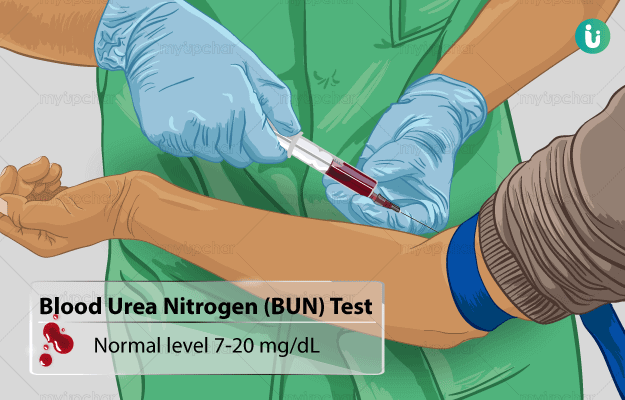What is a Blood Urea Nitrogen (BUN) Test?
A BUN test is used to detect the amount of urea nitrogen present in blood. Urea nitrogen is a waste substance that is removed from the body by kidneys. High BUN levels are indicative of improperly functioning kidneys.
Liver produces ammonia by breaking down proteins (amino acids). Ammonia has toxic effects on the body and is converted into urea and uric acid by the liver. Urea is then released into the bloodstream, through which it reaches kidneys, where it is filtered and released in the form of urine. Improper functioning of kidneys lead to urea accumulation in the body. Increased BUN levels, thereby indicate a problem either in liver or in kidneys.






























